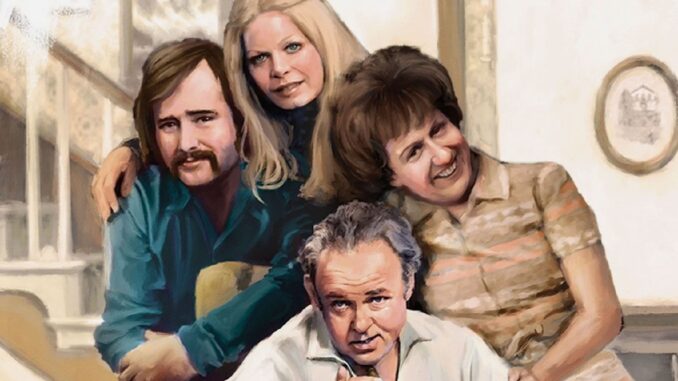
The Surprising British Influence on America’s Sitcom Golden Age
When we talk about American television in the 1970s, we often picture laughter-packed living rooms, groundbreaking storylines, and characters who’ve become pop-culture icons. But here’s a twist you may not expect: many of those iconic sitcoms actually began their lives across the Atlantic. That’s right — some of the most important ’70s sitcoms were remakes of British television shows.
Let’s dive into how British humor, storytelling, and social commentary reshaped American pop culture during one of TV’s most memorable decades.
Why the 1970s Were a Revolutionary Era for Sitcoms
The 1970s weren’t just another decade of TV; they were a creative explosion. Networks took bigger risks, audiences demanded authenticity, and comedy became a tool for addressing real-world issues. But to push boundaries, U.S. producers often looked to the U.K., where sitcoms were already weaving humor with meaningful commentary.
America Wanted Fresh Stories — Britain Had Them
British sitcoms focused heavily on character dynamics, flawed personalities, and social class tensions. American producers saw an opportunity: adapt the concept, tailor it to U.S. culture, and boom — TV history was rewritten.
The British-American Sitcom Pipeline
Here’s where things get fun. Some of America’s biggest ’70s comedy hits were direct remakes, heavily inspired, or loosely based on U.K. originals.
“All in the Family” — The Most Influential One of All
If there’s one sitcom that defines the ’70s, it’s All in the Family. But many fans don’t know it was adapted from the British sitcom Till Death Us Do Part.
-
The grumpy patriarch?
-
The generational tension?
-
The social satire?
All lifted from the original, then polished with an American twist. What followed was a cultural tsunami that redefined what sitcoms could talk about.
“Sanford and Son” — A Brilliantly Localized Classic
The beloved Sanford and Son originated from the British series Steptoe and Son.
The U.S. version took the father-son junk-yard comedy formula and injected it with a vibrant, uniquely American comedic style that turned it into a prime-time staple.
“Three’s Company” — From the U.K. With a Twist
Believe it or not, Three’s Company was based on the British sitcom Man About the House.
The American version turned up the slapstick humor and quirky misunderstandings, making it a household favorite nationwide.
Why Producers Loved British Sitcoms

British television offered exactly what the American market needed:
Rich Characters With Everyday Struggles
British sitcoms centered on relatable, flawed characters rather than idealized families.
This approach connected deeply with American audiences who were experiencing social, political, and economic shifts.
Strong Themes That Could Be Adapted for U.S. Audiences
Themes like:
-
Generation gaps
-
Social mobility
-
Identity
-
Class differences
were universal. Adapting them wasn’t just easy — it was genius.
How British Humor Translated to American Laughter
The Magic of Localization
American writers didn’t copy scripts word-for-word. They kept the skeleton of the original, then rebuilt the muscle and heart to fit U.S. culture.
Think of it like renovating an old home — same foundation, brand-new personality.
Humor That Crossed Oceans
British humor is dry, blunt, and satirical.
U.S. humor tends to be energetic, expressive, and punchline-driven.
When blended, the result was fresh, sharp, and wildly entertaining.
Did Audiences Know These Shows Were Remakes?
Not usually.
In the 1970s, American audiences didn’t have instant access to international TV. Streaming didn’t exist. Even cable was limited. So when a network debuted a sitcom based on a British series, it felt brand-new to the U.S. viewer — even though the concept had been tested abroad.
The Creative Risks That Paid Off
Many British-inspired sitcoms took risks U.S. producers previously avoided.
For example:
Tackling Real Issues
Race, politics, sexuality, gender roles, and economic struggles — these weren’t common sitcom topics before the ’70s.
But the British originals already handled them with humor and bite, giving U.S. writers a proven structure.
Pushing the Boundaries of Comedy
Characters didn’t have to be perfect. Families didn’t have to be wholesome. Powered by British inspirations, American sitcoms began embracing realism.
The Legacy These Remakes Left Behind
Today, we still feel their impact.
They Paved the Way for Modern Comedy
Shows like The Office (another British-to-American remake), Modern Family, and The Conners wouldn’t exist without the bold storytelling groundwork laid in the 1970s.
They Shifted TV Into Social Commentary
Comedy became a mirror for society — not just entertainment.
Lesser-Known Remakes You Might Have Missed
“Good Times” and British Influence
While not a direct remake, the show carried strong thematic DNA similar to British working-class sitcoms.
“What’s Happening!!”
Similarly, U.K. humor and pacing influenced the structure and comedic tone of early African-American sitcoms.
The Secret to Their Success
They Blended Two Cultures Perfectly
British storytelling + American comedy flair = unforgettable television.
They Reflected Real Life
People saw their own families, struggles, and quirks on screen — and they laughed through the chaos.
Why the ’70s Sitcom Remakes Still Matter Today
These shows taught modern creators that adaptation isn’t copying — it’s evolution.
The best remakes don’t just borrow ideas; they transform them into something richer, bolder, and more meaningful.
Conclusion
The 1970s sitcom era was more than nostalgia — it was a cultural rebirth. And at the heart of that revolution were brilliant British originals that found new life in American living rooms. Whether it was the gritty honesty of Till Death Us Do Part, the father-son squabbles of Steptoe and Son, or the quirky charm of Man About the House, each British series planted seeds that blossomed into iconic American hits.
These remakes didn’t just entertain. They challenged norms, sparked conversations, and shaped generations. And even today, their influence echoes through sitcoms that continue to redefine television.
